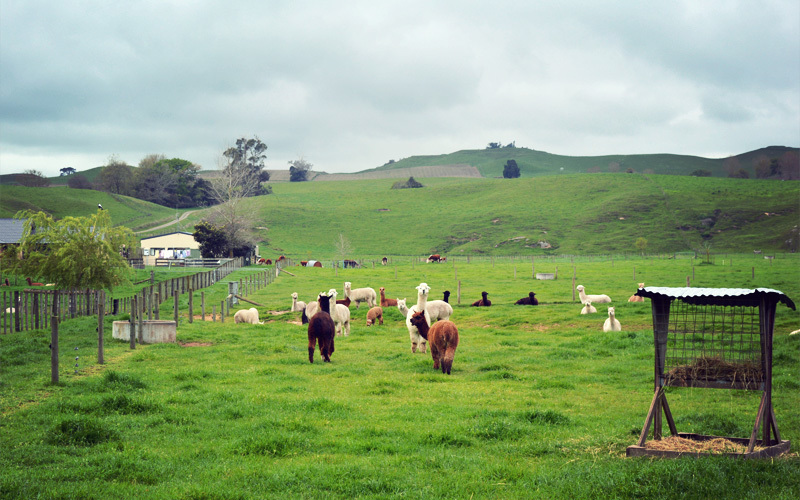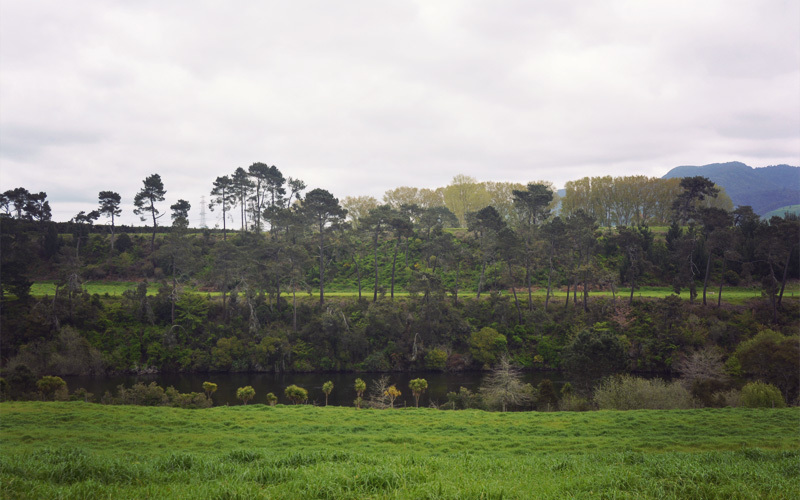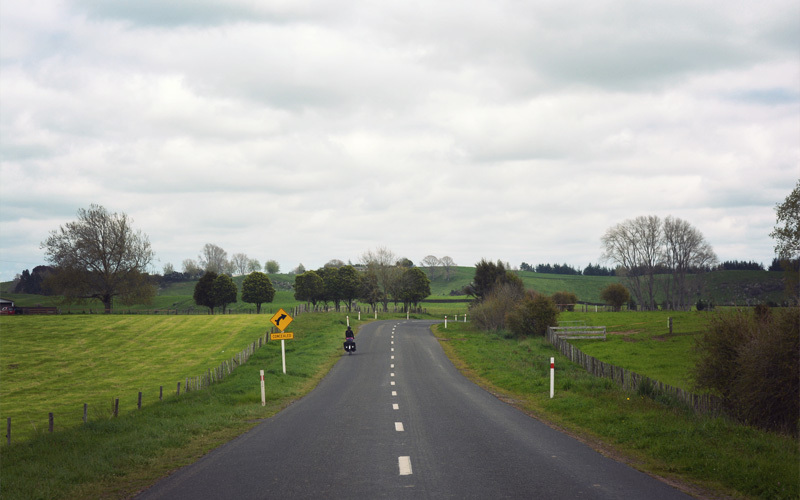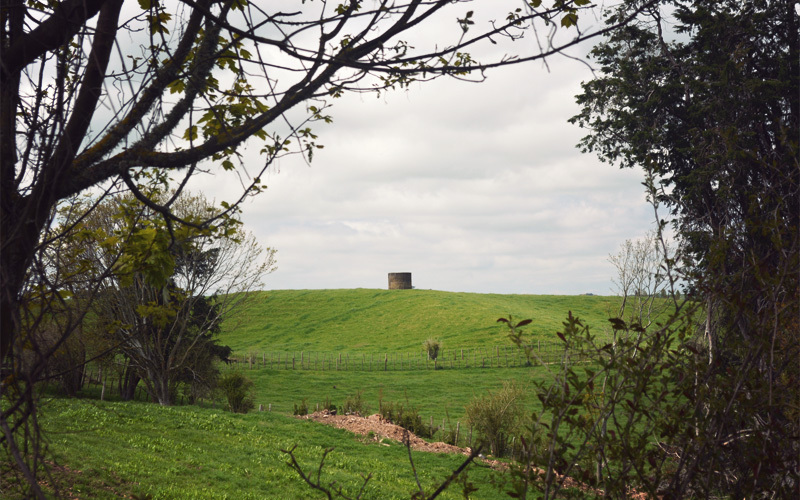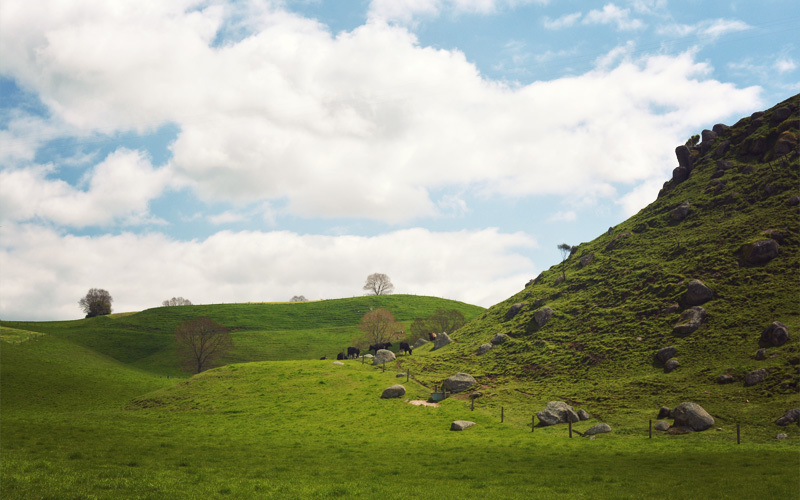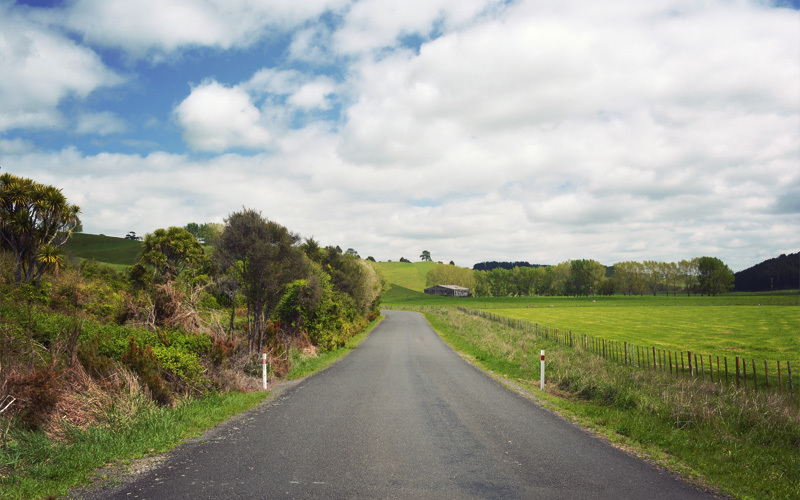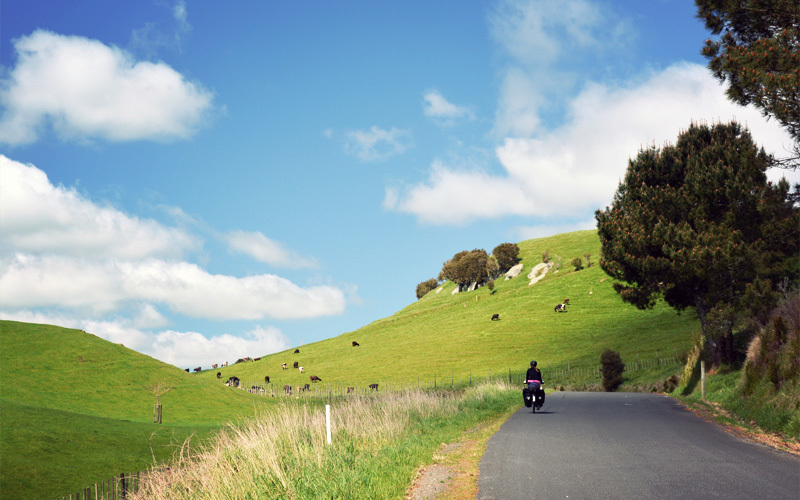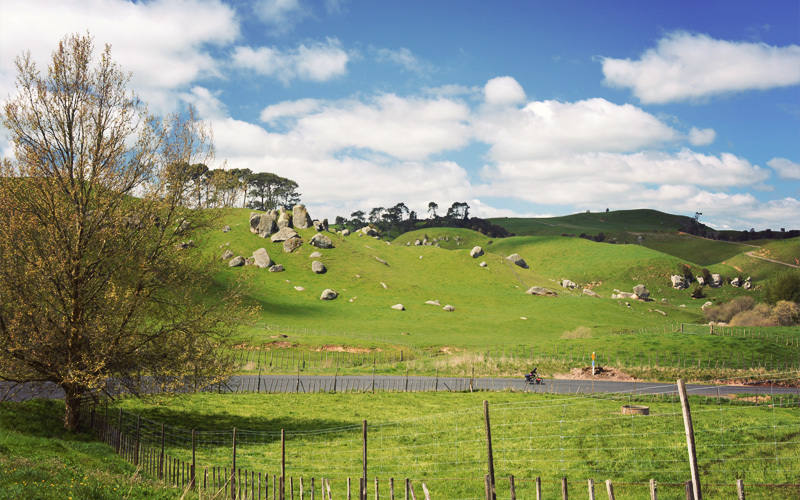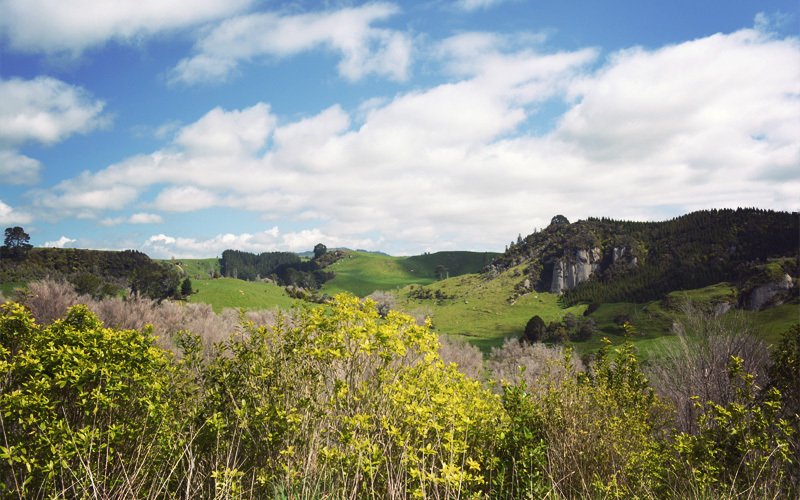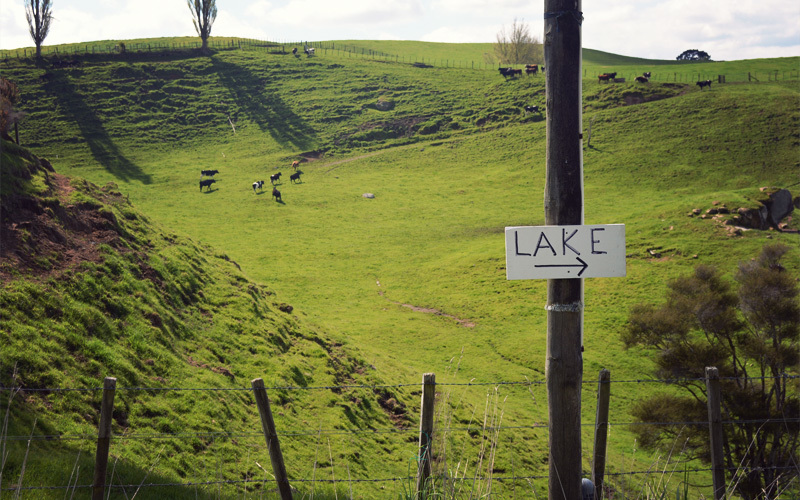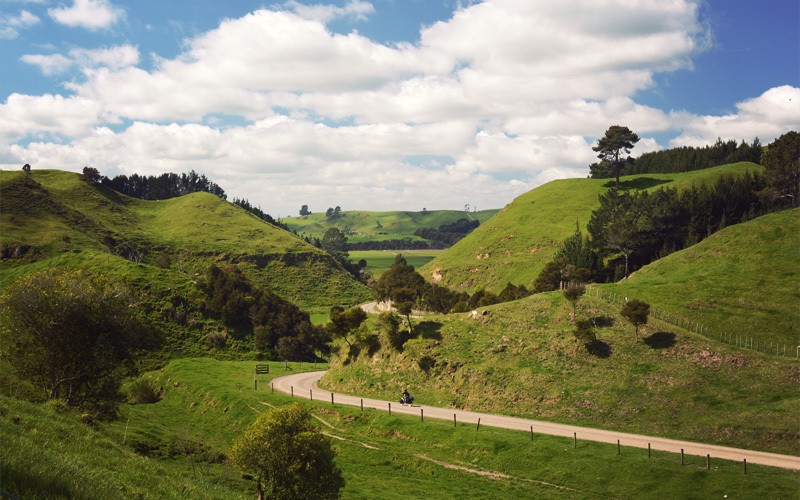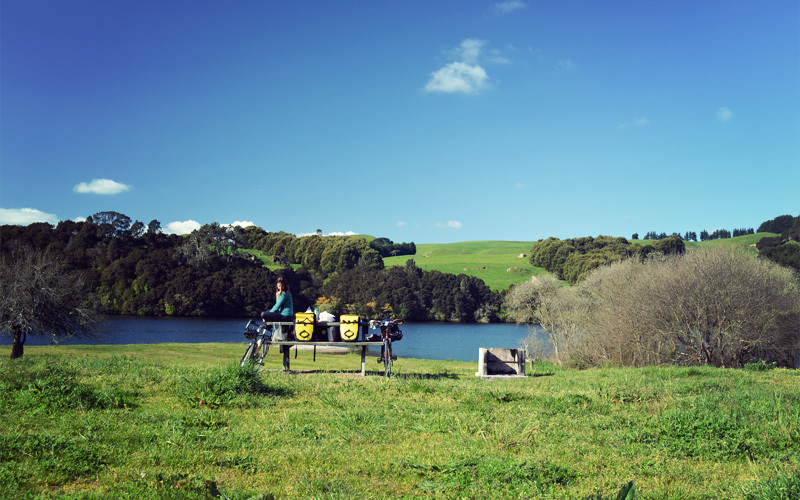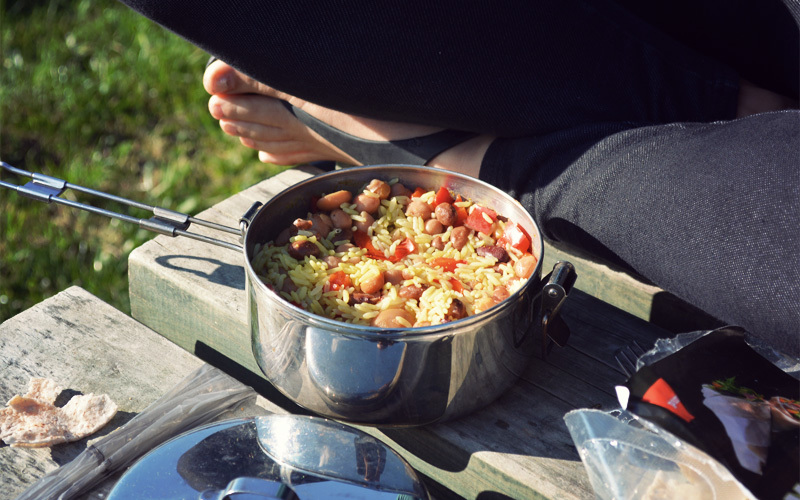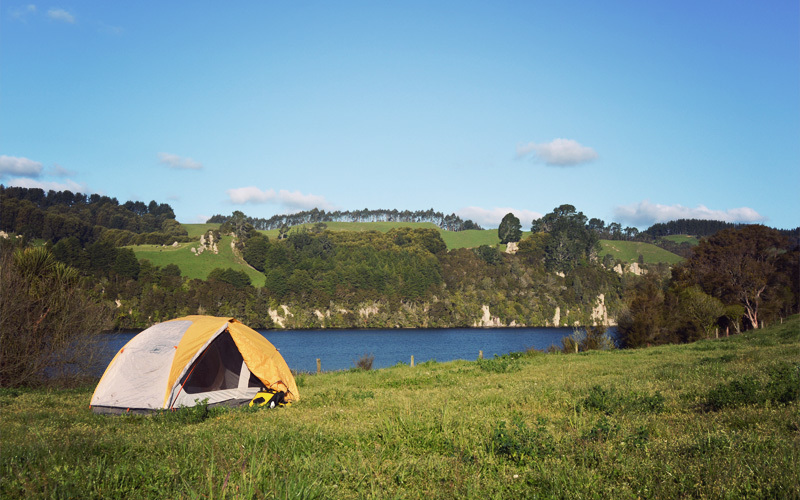October 13, 2014
Day 48: Near Matamata, NZ to Arohena Campground
We intend to wake up early, but the pillows are too soft and the bed too comfortable for that to happen, so in the end an extra couple hours of sleep win out. When we finally get vertical we're greeted with smiles and good mornings and a delicious breakfast of toast and poached eggs and bacon, all of which are far more than we ever could have imagined when we rolled out of Matamata yesterday afternoon. We can't thank Robyn and Henry enough for welcoming two oddly dressed strangers into their home for the night and treating them like family, but that doesn't mean we don't give it our best shot.

| Heart | 0 | Comment | 0 | Link |
A few miles down the road we see a series of tour buses headed our way. In most places like this that would be unusual, because out here it's all wooden fence posts and stacks of hay and the stink of cow poop. But today we're only a few kilometers from one of the most popular attractions in New Zealand. Back when Lord of the Rings was filmed, the producers chose to build a real-life version of The Shire — where Bilbo Baggins and a whole bunch of other hobbits live — on a family farm in this area, which was chosen because of its rural beauty. Although the original was torn down following filming, the entire thing was rebuilt in a permanent way when the crew returned to film The Hobbit several years later. Now it's known as Hobbiton, with all of the gift shops and cheesy Shire-themed restaurants that go along with such a name. Even though we can't stand most tourist traps, Kristen is such a serious nerd for Hobbit-related things that for months we'd planned to make a stop while riding here. It seemed like the perfect fit. But after doing some research in Auckland, we learned that the basic tour, which most people describe somewhere between kind of interesting and total rip-off, costs $75 per person. This means that the closest we come to Hobbiton is waving at the bus drivers and underwhelmed vacationers as they fly past us toward the entrance.
The rest of the morning passes along the rises and curves of a lake and then the river that feeds into it. The hillsides around the valley run so steep that the earth on top of them can't stay smooth, so instead they have these horizontal striations that run along them like thin brown zebra stripes. In the distance we hear the horn-like honk of flying geese, while in each pasture next to the roadside we see sheep with dirty white fleece concerned about nothing excxept eating grass from now until the end of forever. There are no restaurants, no grocery stores, not even a gas station. It's peaceful, idyllic, and uncomplicated. It's everything we hoped we'd find out here.
In the afternoon we pick up an empty back road, the kind where it's just sealed surface, with no markings along the center or at the edge. At first it runs above a river that flows far enough down below us that we can't see it, but we can still pick out its path because of the dense lines of trees and bushes that follow along. The thickness of the vegetation pushes an already beautiful landscape into the realm of stunning, because it gives a glimpse into what so much of this part of the country must have looked like before the arrival of agriculture.
Farther on the river drops away and we climb up into the hills, where the road is lined with wooden fences in which every one of the posts sits at some angle to the left or the right of vertical. Up above the sheep and the cattle we see old barns and hay sheds faded from decades of use. And embedded into the hills we look up at the tan faces of glacial erratics the size of dump trucks, which are followed in short order by sheer rock faces that fade into broad expanses of what look like evergreen trees.
"You know in that Antlers song where there's the line about getting ready for when everything is wonderful?" Kristen asks me. "This is it, this is where everything is wonderful. We're here."
She's right. And what's even more amazing is that we aren't in a national park or a nature preserve, where all we see is protected and we're surrounded by tourists, but just some back road in the middle of New Zealand that has never and will never appear in any tourist guide, pamphlet, or glossy brochure.
To reach our campground we have to drop all of the elevation we spent the afternoon earning. But even though we know we'll have to make it all up tomorrow, and even though the gravel road that leads to the campground goes from rough to very rough to dangerously rough before we reach its end, the side trip proves itself worthy of every kilojoule of energy expended.
At the road's end we coast to a stop along the shores of Lake Arapuni. There are no tents, no motorhomes, no vehicles of any kind at the campground. The lake is free of any boats or kayaks or those stupid personal watercraft that Americans love so much. In the hills we see only two houses, both of modest size and far distant, perched hundreds of feet above the cold blue of the water's surface.
And what hills they are. Rock cliffs drop straight down into the water, massive trees the color of emeralds hang above them, and leading up to the crests is grass of the brightest green, with only a few dozen of what must be the world's happiest cows grazing upon it. From where we stand we watch flocks of birds speed in from the north and descend with a great hurry into the branches of the small trees that run along the shoreline in front of us. During dinner a hawk circles those same small trees a couple of times before looping above our table and then gliding silently off over the hills behind us. Throughout all of it is the constant sound of tiny waves falling into the sandy shore.
In all honesty, it's hard to process the scope of what's around us. Just about every place like this lake that exists in America and isn't secluded in some deep mountain canyon is surrounded by homes and docks and marinas, with more of those kinds of structures being built around it all of the time. To find such unspoiled beauty so close to major cities and larger towns is something we've never before in our lives experienced.
With the sun casting its last rays on the tops of the hills and the wind gone and the lake glass-flat, we talk and wonder what our lives might have looked like now and in the months and years to come if we hadn't taken the opportunity laid out in front of us, if we hadn't set off on this adventure. We go through plausible-sounding scenarios about the kind of work we'd be doing, where we'd travel on free weekends and during the holidays, and considering if our experiences in Portland would have led us to stay there or move on to some place new. And then all we can do is laugh about how lucky we are, because the one thing we don't have to dream about is what it'd be like to leave civilized life behind and charge out across countries on bicycles in whatever direction and whatever pace feels right. Somehow we managed to make that happen, and it's every bit as rewarding and life-affirming as we hoped that it would be.
Today's ride: 34 miles (55 km)
Total: 1,645 miles (2,647 km)
| Rate this entry's writing | Heart | 2 |
| Comment on this entry | Comment | 0 |
